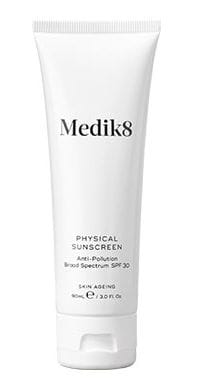
GETTY IMAGES
Like acne and rosacea, eczema is a common skin condition that can have a huge impact on someone’s life. To help sufferers understand – and treat – eczema effectively we spoke to Dr Anjali Mahto, consultant dermatologist at the Cadogan Clinic, about the dos and don’ts of living with it.
How can you tell if you definitely have eczema?
“Eczema (also known as dermatitis) is a highly individual, dry skin condition which varies from person to person and comes in many different forms. It is not contagious so you cannot catch it. In mild cases of eczema, the skin is dry, scaly, red and itchy. In more severe cases there may be weeping, crusting and bleeding. In the UK, one in five children and one in twelve adults have eczema while eczema and contact dermatitis account for 84-90 per cent of occupational skin disease.”
Can eczema be cured?
“Whilst there is currently no physical cure for eczema, there is hope of an eventual treatment targeting the root cause. New research conducted by Newcastle University found that sufferers are missing a vital protein, filaggrin, in their skin which drives eczema to develop. This is welcome research for those suffering with eczema and the doctors who treat them, as better understanding of the pathophysiology of eczema will aid development of targeted treatments.”
What skincare products should eczema sufferers avoid?
“Stay away from anything that is an astringent or drying, containing alcohol, alpha-hydroxy acids (AHAs), and anything in the retinoid family. AHAs are most often labeled as glycolic acid and can be found mostly in anti-ageing products, chemical peels, or fruit-derived scrubs. Synthetic dyes (often used to add colouring to cosmetics), fragrances, petroleum and sulfates should also be avoided, as these can cause irritation and flare ups.
Are there any activities someone with eczema should avoid?
“Sweating caused by exercise, fabrics and heat is the most frequent cause of exacerbations in patients with eczema, as sports clothing is often made of synthetic materials that make skin sweat even more. However, this doesn’t mean you should avoid exercise as this can affect your overall health and wellbeing. Instead, opt for loose cotton clothing and natural fibres and wash with a bath or shower friendly emollient immediately after exercising.”
What skincare products should someone with eczema ideally use?
“You want to avoid irritating the inflamed skin as much as possible, so try swapping your soap for emollients or bath oils to wash with. Limit the use of foaming shower gels to your armpits, skinfolds and hands and feet to help limit aggravation of the skin. In terms of facial products, try a gentle, fragrance-free cleanser such as La Roche Posay Toleriane Dermo-Cleanser.”

What about sun protection?
“Eczema is caused by a combination of being genetically more prone to allergy as well as having more permeable skin so that chemicals in products soak in to cause irritation. This means that eczema prone skins tend to react less to physical sunscreens, which use tiny particles of metal oxide that sit on top of the skin, such as titanium dioxide. The formulation will need to be emollient, as porous skin loses moisture more easily. As with emollients and other skincare products, avoid fragrance and other irritating ingredients. Sun exposure is drying to the skin, so try to apply your emollient about half an hour before applying sunscreen. This will prevent the sunscreen from becoming diluted by the emollient and will ensure that the sunscreen keeps its protective properties.”
What’s the biggest mistake people with eczema make with their skin?
“Scratching where eczema is itchy is a big mistake, as the skin may begin to bleed and lead to infection, aggravating it further. Also, while washing with hot water may provide temporary euphoric relief from itching, high temperatures dry out the skin even more. Clothing is also important; wool and synthetic fabrics can be notoriously prickly and rub on the skin and using a perfumed fabric lotion may be causing further irritation.”

Medik8 Physical Sunscreen SPF30
What are the best eczema treatments?
“There are a variety of different treatments available that can be applied as standalone treatments or in combination with each other. These range from emollients for use in the bath or shower, medicinal moisturisers to relieve acute itchiness and weak topical steroids or immunosuppressants for stronger cases. These steroids are applied externally to the skin and reduce inflammation and itching without causing skin thinning, enabling the skin to heal more effectively. Visit a dermatologist for a proper, individual assessment of which treatment is best for you.”
From: Harper’s BAZAAR UK



